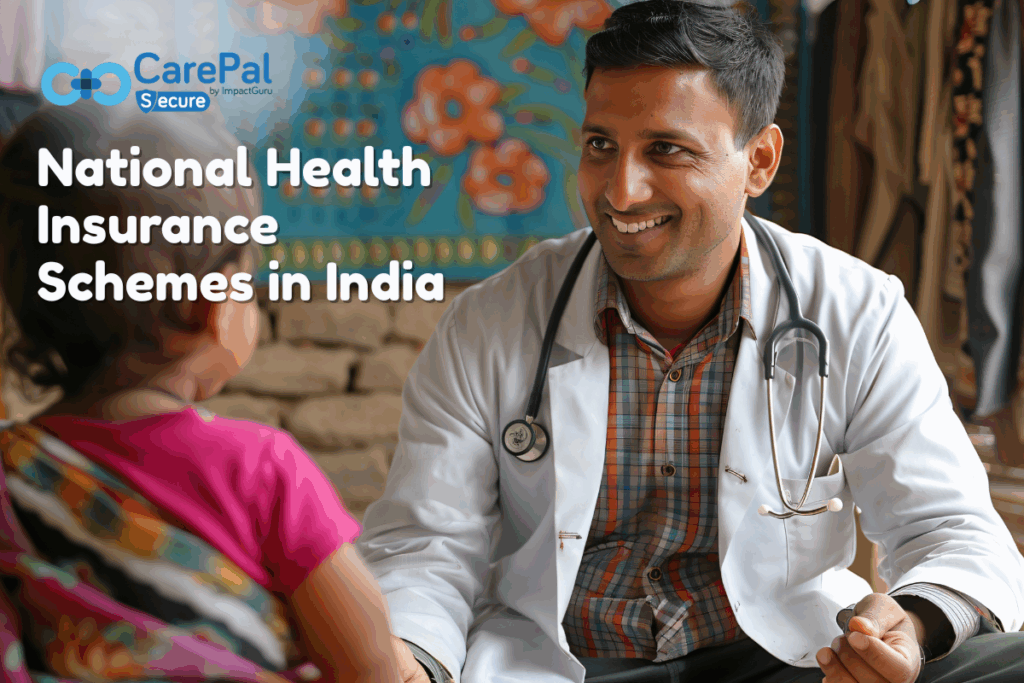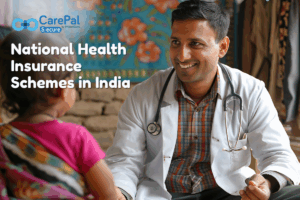The Ultimate Guide To Travel
Insurance Vs. Medical Insurance

When planning an international trip, a crucial decision is choosing the right type of insurance. Should you opt for travel insurance or medical insurance offering international coverage? This guide will help you understand the differences and benefits of each, ensuring you make an informed choice.
Statistics Related To International Travel
– Increase in International Travel: According to the Indian Ministry of Tourism, outbound travel from India increased by 14.2% in 2019. With more Indians travelling abroad, the need for appropriate insurance is higher than ever.

– Healthcare Costs Abroad: Healthcare costs can be significantly higher abroad. For instance, a single day in a US hospital can cost up to ₹2 lakh, making comprehensive medical insurance a wise choice for long-term travellers.
– Common Travel Issues: Data from various travel agencies suggest that 25% of travellers experience some form of travel disruption, underlining the importance of having travel insurance.
Understanding Travel Insurance
Travel insurance is designed to cover a wide range of travel-related issues. Here’s what you typically get with travel insurance:
1. Trip Cancellation/Interruption: If you need to cancel or cut short your trip due to unforeseen events like illness, natural disasters, or a death in the family, travel insurance reimburses you for non-refundable expenses.
2. Lost or Delayed Baggage: If your luggage is lost, stolen, or delayed, travel insurance compensates you for the essential items you need to purchase and may cover the value of the lost items.
3. Emergency Medical Coverage: This covers medical expenses for emergencies during your trip, such as injuries or sudden illnesses that require immediate attention.
4. Delay in Travel: If your journey is postponed due to harsh weather or airline worker strikes, you will be compensated for extra costs such as lodging and food.
5. Accidental Death or Dismemberment: Provides benefits for serious injuries or death during travel, giving financial support to you or your family in the event of a tragedy.
Understanding Medical Insurance with International Coverage
Medical insurance with international coverage focuses primarily on health-related issues. Key features include:
1. Comprehensive Medical Coverage: Extensive coverage for medical expenses, including hospital stays, surgeries, and doctor visits, ensuring you receive proper medical care abroad.
2. Pre-existing Conditions: Many policies cover pre-existing medical conditions, which are crucial for travellers with chronic health issues. Always check the policy terms for specifics.
3. Long-term Coverage: These health insurance plans are ideal for long-term stays abroad, such as studying or working overseas. They often provide continuous coverage for an extended period.
4. Emergency Evacuation: Covers costs for emergency medical evacuation to your home country or the nearest medical facility if you cannot receive adequate treatment locally.
5. Prescription Drugs: Coverage for prescribed medications, ensuring you have access to necessary drugs during your stay abroad.
Comparing Travel Insurance & Medical Insurance
Feature Travel Insurance Medical Insurance with International Coverage Coverage Scope Travel-related issues + medical emergencies Primarily medical expenses Trip Cancellation/Interruption Yes No Lost/Delayed Baggage Yes No Comprehensive Medical Coverage Limited Extensive Pre-existing Conditions Sometimes Often Emergency Evacuation Yes Yes Ideal for Short-term travel Long-term stays Benefits Of Each Insurance Type
1. Travel Insurance Benefits:
– Coverage for Trip Cancellation/Interruption: Useful for unpredictable situations like political unrest or sudden personal emergencies.
– Protection Against Travel Inconveniences: Lost luggage, delayed flights, and trip interruptions are common issues travellers face. Travel insurance mitigates these risks.
– Emergency Medical Coverage: While not as extensive as medical insurance, it still provides vital coverage for sudden health issues during your trip.
– Cost-Effective for Short Trips: Typically less expensive than medical insurance, making it ideal for vacations and short business trips.
2. Medical Insurance Benefits:
– Comprehensive Health Coverage: Covers a wide range of medical services, from routine check-ups to emergency surgeries.
– Long-term Peace of Mind: This plan is perfect for expatriates, students, and long-term travellers who need ongoing health coverage.
– Pre-existing Conditions: Many health insurance policies offer coverage for pre-existing conditions, which is crucial for those with chronic illnesses.
– Continuous Coverage: Unlike travel insurance, medical insurance provides continuous health coverage without frequently renewing it.
Which One Should You Choose?
1. For Short-Term Trips: Travel insurance is generally sufficient if you travel for a short duration, such as a vacation or a business trip. It provides a broad range of coverage, including medical emergencies and travel-related issues.
2. For Long-Term Stays: If you plan to stay abroad for an extended period, such as for work or study, medical insurance with international coverage is a better choice. It offers more comprehensive medical coverage and is better suited for long-term healthcare needs.
3. For Specific Needs: Consider your specific needs and the nature of your trip. If you have pre-existing medical conditions or require extensive medical care, medical insurance with international coverage might be more appropriate. On the other hand, if you’re more concerned about travel disruptions and lost baggage, travel insurance could be the better option.
Conclusion
Choosing between travel insurance and medical insurance offering international coverage depends on the nature of your trip and your personal needs. Assess your priorities, the duration of your stay, and any specific health concerns to make the best decision.
Safe travels, and stay covered!
Frequently Asked Questions
Good digestion ensures proper nutrient absorption, strengthens immunity, and boosts energy levels. It also prevents complications like weight gain, hormonal imbalances, and chronic diseases.
Consider the insurer’s financial stability, claims process, coverage terms, and inclusion of services like teleconsultation and diagnostic tests. These factors ensure smooth access to care and timely claim settlements.
Poor digestion can cause nutrient deficiencies, weakening the immune system and leading to fatigue. It’s also linked to weight gain, diabetes, and mental health issues.
Adopt a balanced diet rich in fiber and fermented foods, quit smoking, avoid alcohol, exercise regularly, and manage stress to support healthy digestion.
It offers comprehensive benefits, including hospitalization, diagnostic tests, and teleconsultation, with a reduced waiting period for pre-existing conditions and cashless treatments.
Hi, my name is Om, and I am a developer at Carepal Secure. With a strong passion for technology and innovation, I enjoy creating effective solutions and learning new skills to enhance my expertise. My journey in development has been both challenging and rewarding, allowing me to grow professionally while contributing meaningfully to the projects I work on.












